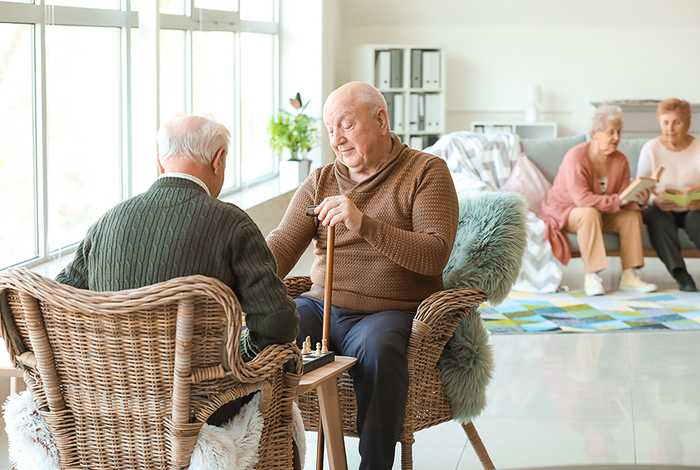Posted by Rob King
Frequently asked care home questions during coronavirus (COVID-19) outbreak
Autumna receives calls 7 days a week from concerned families and from care providers
In this blog we will try to answer some of the more frequently asked questions about care homes and home care agencies that our Advice line is receiving during the coronavirus lock down. The situation is changing all the time though, so if you are worried about developments, then please call us on 01892 30 05 30. Our friendly staff will do their best to help you.
Are care homes still open to admissions?
Yes and no. As of the date of this blog (13th April 2020) the majority of care homes are still taking admissions but every care provider is responding differently to the crisis. Whether a care provider is still open will depend upon:
- The residents they currently have in their care home
- How many staff are self-isolating or shielding and therefore not at work
- Whether they are accepting patients from their local hospitals
Are care homes only taking people who have had coronavirus?
No. We speak to a lot of care homes and whether they can accept residents who currently have coronavirus, or residents who have already had coronavirus will depend on the individual care home. This in turn will depend upon the other nursing or dementia needs of the resident and whether the care provider can support those needs. It will also depend on whether the provider has access to the PPE (Personal Protective Equipment) they need in order to support the resident and protect their staff and the other residents.
Mum is due for discharge from hospital in a couple of days, will any care home take her for respite care during the crisis?
Yes. Care homes are accepting people for respite care. It is possible though that Government regulations may change with reference to how soon someone is allowed back home if the care home has residents testing positive for COVID-19.
Can I move mum out of her care home? I’ve just found out a case of covid19 has been reported on the ground floor and that is where her room is.
Whether you can move your mum or not will depend on several factors. Here are just a few things you should consider.
-
If the home is barrier nursing then she is probably in the safest place. Barrier nursing is social distancing but stepped up a gear. Residents would be confined to their own rooms and any staff going in and out of the room would be instructed to take all necessary hygiene precautions and wear personal protective equipment (PPE).
-
If you are moving her to a home that doesn’t also have residents with coronavirus, there is no guarantee that that will remain the case.
-
If you are moving her back into the family home, the fact that a decision had been made in the past that she needed looking after in a care home, would suggest that this will probably not be the best long-term solution.
Our recommendation would be, if you believe the care home she is in is doing everything they can to keep her safe, then you might be best to leave her in the environment she has come to know well, with skilled carers who also have come to know her well.
How can we settle mum into a care home if we aren’t able to visit her? She has dementia and there’s no way she will remain in her bedroom during isolation.
This is without doubt tricky. You will be relying on staff who don’t know your mum yet. However, they are all professionals and will do everything they can to help your mum settle. If your mum will respond to an ipad or a phone call, regular contact would be useful. You can also make sure she has as many photos and familiar objects around her in her room as possible. Make sure though that these objects have been sterilised first and reassure the staff that this is the case. The bottom line is during this critical situation, it will be down to the staff to do the job they are trained for and help your mum.
Will care homes still be organising activities during the COVID-19 pandemic?
Yes, but generally in homes where the virus hasn’t yet been confirmed.
In these cases care homes generally provide lots of stimulation and entertainment. We tend to recommend that you check out a care home’s Facebook page or LinkedIn page to get a flavour of what they are doing. You should also look to see if the home has NAPA membership. That is usually a sure sign that they take activities seriously.
If a care home has somebody who has tested positive or is showing symptoms, they will be confined to their room and that makes mental and physical stimulation very much more challenging. In these cases the more digitally connected the resident can be the better. Ask if the care home has a family portal such as Person Centred Software's Relative's Gateway. That can make all the difference in keeping someone who is being barrier nursed, engaged and feeling positive.
How can I find out the statistics for care home deaths relating to covid-19, I’m really worried about mum who’s been in a care home for 14 years.
To our knowledge there are no detailed or accurate government statistics available as care homes have generally been unable to test for COVID-19. We realise this is not a very useful answer, but if we do get any updates on this subject, we will post them here.
Will we be able to have any communication with Mum through, Skype etc?
We have all seen the harrowing pictures of families standing outside care homes trying to communicate with their loved ones inside. Nothing can compete with face-to-face human contact, but any sort of communication, in whatever form it takes during this lock down situation, has to be better than nothing. Skype, Zoom and family portals are excellent ways of communicating, but don’t underestimate a simple phone call or a written letter.
Will home carers continue to visit elderly people who have Coronavirus?
Yes. Whilst some home care companies have had to stop taking on new clients because of a lack of staff and PPE (Personal Protection Equipment), they recognise that they are often the only lifeline for their clients and are continuing to support them. This means that sometimes during the COVID-19 situation, it may not be the normal carer who visits. All carers who do visit someone with coronavirus will be required to wear personal protective equipment (PPE).
What personal protection equipment (PPE) should home carers be wearing?
If home carers are visiting a person with coronavirus or showing symptoms of coronavirus, they should be wearing:
- disposable gloves
- disposable plastic apron
- surgical mask
It is vital that you inform your care providers immediately if you start to suspect you have any of the symptoms of coronavirus. The main ones are:
- a high temperature and
- a new, continuous cough.
This allows your home care visitors to take preventative measures in the form of PPE to help reduce the spread of the virus and ensure you continue to get the best care possible
If I start to show symptoms, what should I do?
The government has advised everyone to seek remote medical assistance where possible, either through phone appointments or video calls. To protect others, it is suggested that you do not go to places like a GP surgery, pharmacy or hospital. Try to stay at home and seek help from there.
If I am shopping for an elderly relative, can I go in the time allocated for vulnerable people?
No. The hours that supermarkets have set aside are to allow only those who are vulnerable to enter the shop where there is a lowered risk of contamination. It’s great that you are helping people with their shopping, but you should do it during the normal shopping hours.
Hopefully we’ve answered some of your questions here. We will add to the blog as we identify subjects that haven’t been covered here. If you have a question, or want further clarification on your own particular situation, please don’t hesitate to call us on 01892 30 05 30 or book a time for us to call you back. We are open 7 days a week including bank holidays.
Other articles to read
Autumna Blog

Older Persons Care Advice
Annuities for care home fees: Everything you need to know
October 23rd, 2025
Learn how annuities for care home fees provide guaranteed income, financial stability, and peace of mind when planning for long-term care costs.

Older Persons Care Advice
Care options for the elderly: What is right for you?
October 17th, 2025
Discover care options for the elderly that fit your needs, from home support to residential care, helping you plan confidently for the years ahead.

Older Persons Care Advice
Are next of kin responsible for care home fees
October 17th, 2025
Find out the truth about care costs. Are next of kin responsible for paying care home fees? Learn who pays, exceptions, and how to plan ahead.






